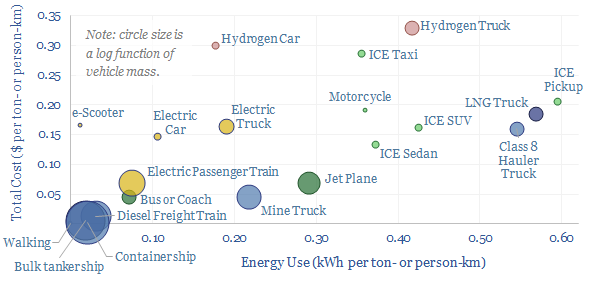
…into hydrogen trucks; and data-files into Goldilocks-like fuel cells and hydrogen fuelling stations. A summary of all of our hydrogen research is linked here. The data-file linked below summarizes all…
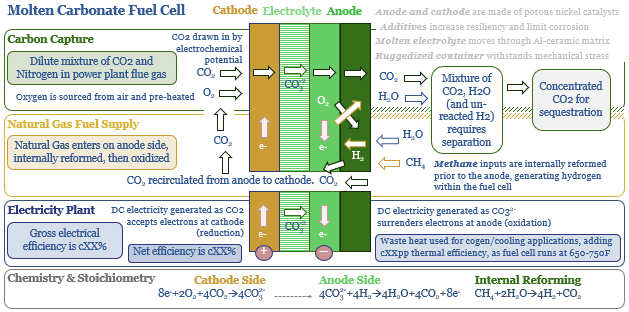
Molten carbonate fuel cells (MCFCs) could be a game-changer for CCS and fossil fuels. They are electrochemical reactors with the unique capability to capture CO2 from the exhaust pipes of…
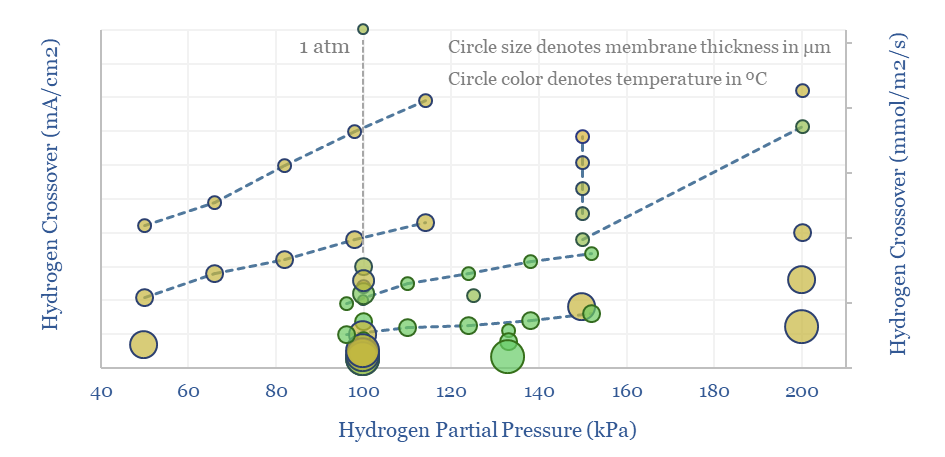
Perfluorinated sulfonate (PFSA) membranes, such as Nafion, are the crucial enabler for PEM electrolysers, fuel cells and other industrial processes (e.g., chlor-alkali plants). The market is worth $750M pa. The…
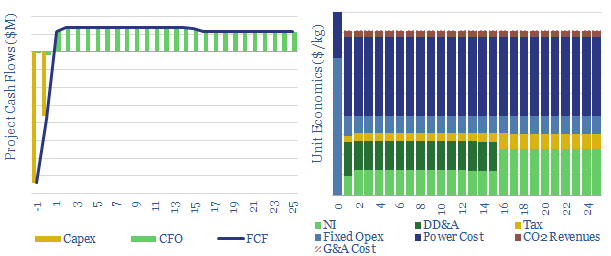
…such as a fuel cell or fuel cell vehicle. A more recent question mark has arisen over the degradation rates of electrolysers, if they are powered by wind and solar…
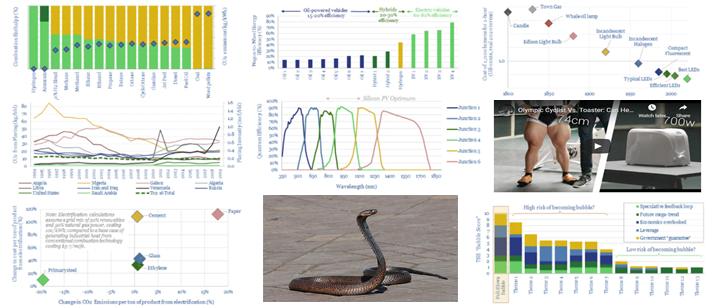
…will likely be 60-70% efficient, with an inevitable over-voltage at the anode. Turning that hydrogen back into useful kWh of energy in a fuel cell will likely be 60-80% efficient….
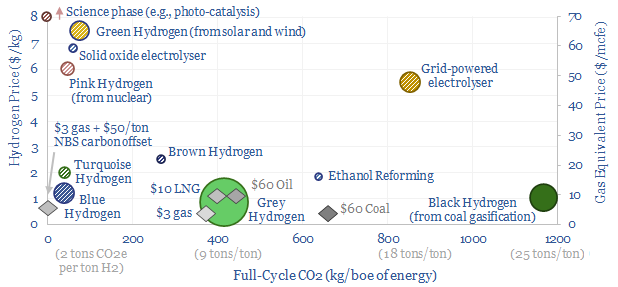
…natural gas, after generating renewable electricity, electrolysing water into hydrogen and storing the hydrogen. Levelized costs of electricity then reach 60-80c/kWh, for generating clean electricity in a fuel cell power…
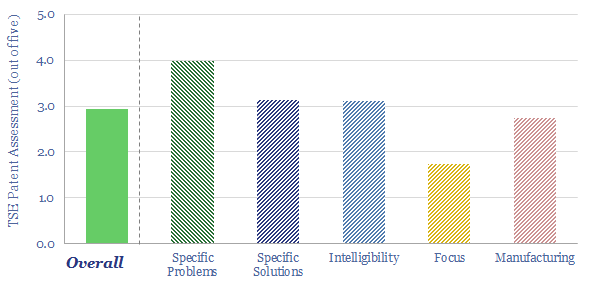
…electrolysers and fuel cells, underlying catalyst materials, membranes and their manufacturing. One patent seems like a breakthrough. Other patents candidly presented challenges for scaling up green hydrogen and raised questions…
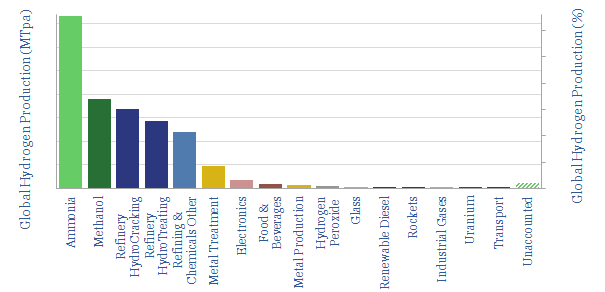
…CO2 per ton of hydrogen), pyrolysis, renewable electrolysis, fuel cell electrolysis, solar photoelectrocatalysis and solar photocatalysis. Our conclusion is that natural gas remains the most viable fuel source on a…
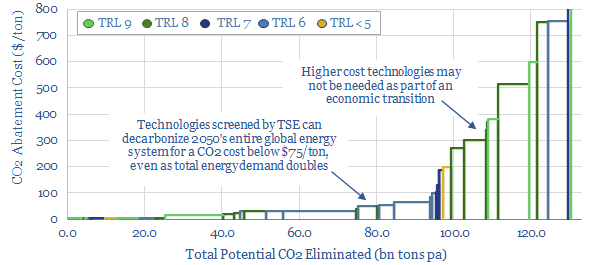
…Combustion (July-2020, 19-pages) Molten Carbonate Fuel Cells: what if carbon capture generated electricity? (Feb-2020, 27-pages) LNG in transport: scaling up by scaling down? (May-2019, 20-pages) Do methane leaks detract from…
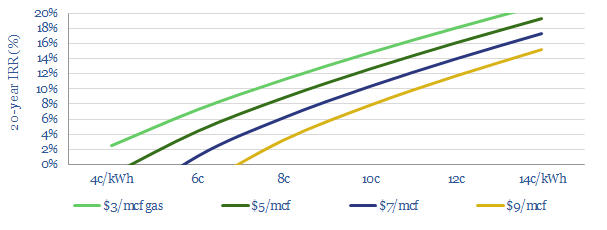
…of oxycombustion power cycles will compete with smaller-scale CHPs and fuel cells. Fuel cells have historically had high decline rates, averaging 5% per year, but recent fuel cells are slowly…










